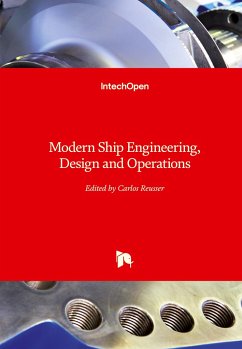Some marine propulsion systems are based on thermal machines that operate under the diesel cycle. Their main advantages, compared to other propulsion systems based on thermal machines, are low specific fuel consumption and greater thermal efficiency. However, their main disadvantages lie in the emissions produced by combustion, such as carbon dioxide (CO2), sulfur oxide (SOx), and nitrogen oxide (NOx). Over the last decade, the International Maritime Organization (IMO) has adopted a series of regulations to reduce these emissions based on the introduction of several energy efficiency designs and operational indicators. In this context, this book focuses on the design and operation efficiency of ships through an analysis of the main propulsion systems. It discusses the use of alternative fuels as well as the integration of hybrid and fully electric propulsion systems.








